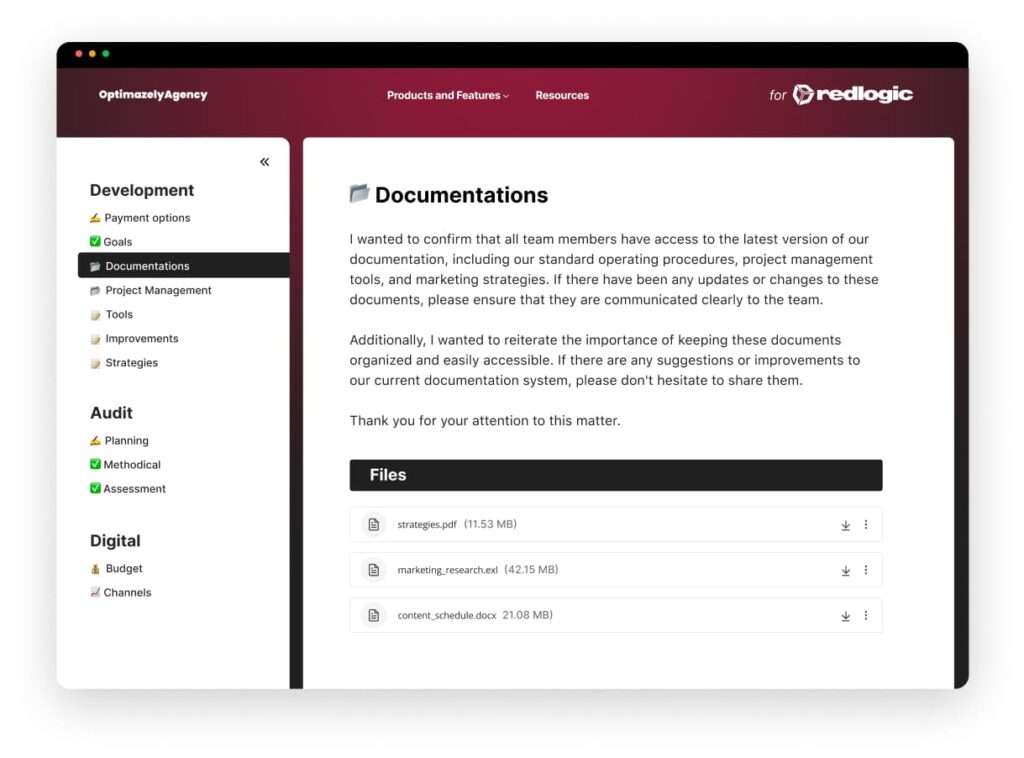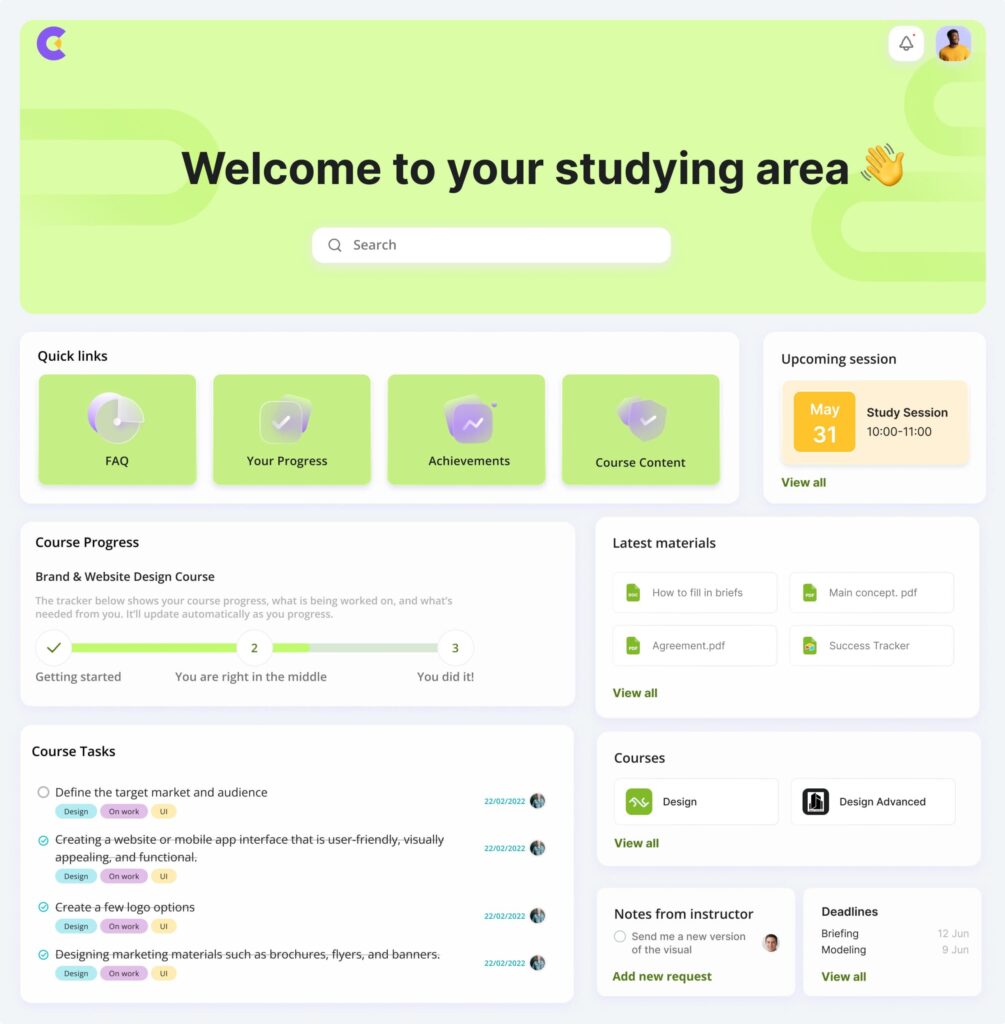
Efficient Team Communication: Utopia or Reality?
- 19 Min read
Institutional knowledge management is a term used to describe how companies manage information internally. It’s a critical component of any organization’s success because it allows employees to access information quickly and easily.
To succeed in the future, organizations must embrace institutional knowledge management as part of their culture. This means making sure everyone knows how to use institutional knowledge management effectively and efficiently.
In today’s fast-paced work environment, sharing knowledge is essential. Whether you’re managing a small business or leading a large organization, there are several types of institutional knowledge you need to know about, how to implement it, and how to make it work for you.
If you’re looking to get started using an institutional knowledge management system, you will learn how to implement the right institutional knowledge for your organization and how to use it effectively.
Institutional knowledge is the collective knowledge and experience of an organization. Institutional knowledge isn’t just about knowing what works. It’s about working together to solve problems, and why things are done a certain way.
When referring to institutional knowledge, it’s all the information that exists within an organization. It includes everything from the best practices and processes of the company to the history of the products they sell.
The goal of institutional knowledge management is to create a shared understanding so that information sharing becomes part of the culture of a company.
Organizations that don’t prioritize knowledge transfer risk losing the context required to develop effective strategies. They lose the ability to harness the collective intelligence of their employees and customers. Without these assets, organizations struggle to adapt to changing environments and grow.
Change is a natural part of growth. Companies that embrace change retain knowledge, while developing staff members. They understand the importance of maintaining the culture of their workforce, values, and identity. This helps them attract, engage, and keep talented individuals.
Knowledge transfer is critical to organizational success. In today’s world, where businesses are becoming increasingly global, digital, and collaborative, information sharing becomes even more important.
There are three main types of institutional knowledge: tacit, explicit, and implicit.
This refers to the skills, abilities, and expertise people have developed over time through experience. These include the ways in which people think, communicate, collaborate, and problem-solve. Tacit knowledge is the kind of knowledge that comes naturally to people who have been doing something for years. Tacit knowledge can be passed on through mentoring relationships, informal training programs, and formal education.
This is the kind of information that can be taught. It’s usually written somewhere and available to anyone who needs it. Explicit knowledge is often referred to as “knowledge-based” or “formalized.” It’s defined by its accessibility. Explicit knowledge is easy to find and share. It includes written documents, spreadsheets, presentations, videos, and other forms of documentation.
This is the type of knowledge that doesn’t exist anywhere else but inside the minds of those who know it. Implicit knowledge is the type of knowledge that doesn’t exist in a tangible form. Implicit knowledge is the kind of information people need to do their jobs well. It includes skills, attitudes, and behaviors that are learned through observation and practice.
Knowing these three main types of institutional knowledge will help you better understand why knowledge sharing is so important.
There are many reasons why institutional knowledge should be considered a key element of any successful organization.
Institutional knowledge is a valuable asset that can be leveraged across departments and functions. When employees learn from each other, it streamlines operations and ensures expertise is shared throughout the company.
By leveraging institutional knowledge, you gain a competitive advantage. You become more efficient and agile. Employees are able to solve problems faster and more accurately.
Employees who feel valued and appreciated are more motivated to contribute and are more likely to stay at their job longer. When they’re happy, they perform better. They’re also more engaged when they see others benefiting from their contributions.
Customers expect high-quality products and services. If employees aren’t knowledgeable about their company, they won’t be able to respond to customer queries or solve problems efficiently. By providing excellent customer service, you demonstrate your commitment to excellence.
If you fail to leverage institutional knowledge, you run the risk of losing customers, clients, and partners. By investing in training and developing new talent, you’ll ensure your company has the right people on board.
People are generally more creative when they’re working in a team. An institutional knowledge base provides employees with what they need to collaborate and be creative. Collaboration breeds creativity. When teams openly share information, they create opportunities for collaboration and innovation.
Having institutional knowledge builds trust because it demonstrates transparency. People know what to expect from you and they have confidence that you’re doing everything you can to help them succeed. When employees have confidence in one another, they’re less likely to question authority. Trust builds loyalty. Loyalty leads to higher levels of productivity and efficiency.
Knowledge sharing helps employees focus on their tasks instead of searching for answers. When employees are confident they can rely on one another, they’re less distracted and more focused on completing their assignments.
The importance of institutional knowledge cannot be overstated. It’s one of the best ways to help your company stay relevant and continue to progress as things change.
Institutional knowledge management is a powerful tool that can improve your company’s performance and long-term success.
When employees have access to institutional knowledge, they’re more prepared for their roles. This will allow you to harness the potential of employees and help them in their professional development. They will complete tasks more efficiently, which means less time spent learning and more time working.
You can increase your market share and grow your revenue if you invest in institutional knowledge management. It will enhance creativity and can boost innovation. It can also make your company more responsive to changing demands.
Your company’s image is closely tied to its ability to deliver exceptional products and services. When you implement institutional knowledge management, you show your customers that you care about their needs and want to provide the best possible solutions.
People choose jobs based on what they know. If you don’t offer opportunities for growth and advancement, you may lose talented individuals. By implementing institutional knowledge management, you create a positive workplace where employees can thrive and develop professionally. Institutional knowledge management helps you keep top performers by giving them the opportunity to advance within the company.
With effective institutional knowledge management, you can build strong teams. Team members will have access to all the necessary resources needed to get the job done. Teams will be more cohesive and collaborative. As a result, your company will operate more smoothly.
Institutional knowledge management can help you reduce costs and streamline processes. You can save money by eliminating redundant steps and reducing errors. Employees will spend less time searching for answers and more time doing productive work.
When employees feel valued and appreciated, they’re more motivated to do their best. They’re also happier and more satisfied with their jobs. A sense of camaraderie develops between team members. This creates an atmosphere of trust and respect.
Institutional knowledge management improves communication among employees. It makes it easier for them to collaborate and work together. The flow of information becomes faster and smoother. This increases efficiency and reduces mistakes.
Customers are increasingly looking for businesses that understand their needs. With institutional knowledge management, you demonstrate that you value your customers’ opinions and feedback. Your customers will appreciate this gesture and respond positively.
Institutional knowledge management helps you identify problems before they become issues. It gives you the chance to resolve issues before they escalate into bigger problems.
Employees who feel like they belong at their place of employment are more likely to stay longer than those who don’t. Institutional knowledge management lets your employees know that you value their contributions and recognize their efforts.
Institutional knowledge management saves time and money. Instead of spending hours searching through files and databases, employees can find the information they need right away. This frees up valuable time so that employees can focus on other tasks.
The benefits of institutional knowledge management are worth the effort needed to implement it. You should consider implementing this system into your company’s workflow so you can reap the rewards.

While institutional knowledge will benefit all companies, getting started and documenting it isn’t easy. Here are a few steps you can take to document institutional knowledge.
An internal wiki is a web application that lets users collaborate online. A wiki is ideal for storing institutional knowledge because it’s easy to update and edit. The wiki can be accessed from anywhere at anytime.
To ensure employees know about the knowledge wiki, leaders need to communicate the importance of using it. This can be done during meetings, through company communication, such as an email newsletter, and make it part of the onboarding process of new employees.
Having subject matter experts or dedicated trainers available to answer questions is important when using institutional knowledge. They can guide new hires through the process and ensure that they understand how to use the tools properly.
Ensure all team members have access to institutional knowledge. Make sure everyone knows how to log into the wiki and navigate through it. Also, make sure they understand how to add content and edit existing pages.
Documentation doesn’t need to be static. Update it regularly to reflect changes in the industry or company policies. This way, you’ll always have the most up-to-date information available.
Sharing your institutional knowledge with others will help them learn faster. They’ll also appreciate knowing that you’ve invested time and effort into creating it.
Once you document institutional knowledge, it’s then about making sure people know how to use it.
A lot of time and effort may go into creating an institutional knowledge management system. To reap the full benefits of it, employees need to know how to use it. Here are ideas that will help embed institutional knowledge in your workplace.
This individual should be responsible for maintaining the knowledge base and ensuring its accuracy. He or she should also be able to provide guidance to other employees who want to contribute.
Encouraging collaboration between different departments will help keep the knowledge base updated. For example, if there’s a change in accounting procedures, someone in human resources could share the news with those in marketing.
Giving people ownership over the knowledge will encourage them to contribute. When they feel like they’re contributing to something meaningful, they’ll be more likely to continue to contribute.
Rewarding good contributors will motivate them to continue providing valuable information. You can give out awards or recognition for outstanding contributions. The aim is to encourage collaboration.
Institutional knowledge management isn’t just useful for employees; it’s also beneficial for customers and partners. If you create a culture where everyone learns together, you’ll build trust among your stakeholders.
Ensure your employees know why institutional knowledge matters. Explain what it does, how it helps them do their jobs better, and why it’s essential to stay competitive.
Be open about the fact that you’re using institutional knowledge management. Let people know that you’re taking steps to improve organizational performance. Transparency helps maintain credibility. Employees will respect you more if they see you being honest and open about what you’re doing.
Use institutional knowledge to inform decisions that affect your company. For example, if you decide to sell a product, you might consider whether the price is fair based on market data.
Building a community around institutional knowledge will allow employees to get feedback from each other. This will encourage creativity and help them improve their performance.
Make sure all relevant documents are stored in your wiki so employees don’t have to search through multiple locations. Keep documents simple. Make sure the content is easy to understand.
Using institutional knowledge in your workplace will make it easier for your employees to perform their jobs. They’ll be able to find answers faster and more accurately, which will increase productivity and efficiency. That will ultimately lead to higher profits.

To create an institutional knowledge base, you need to:
FuseBase (formerly Nimbus) provides these capabilities, which makes it ideal for creating an institutional knowledge base. With FuseBase, you can:
Keep your team ready by building your knowledge base with FuseBase
When you introduce institutional knowledge into your organization, you will need to follow change management practice. Find out the steps to effective change management.
Since your institutional knowledge base will be online, you will get the most value from it through better collaboration practices. Find out how online collaboration can help streamline your business.
If you found this article helpful, please share it so others can benefit too.
Subscribe to FuseBase on LinkedIn to learn about our updates and new articles.
Found it useful? Share the article with your community
Get weekly tips and insights on how to grow your business